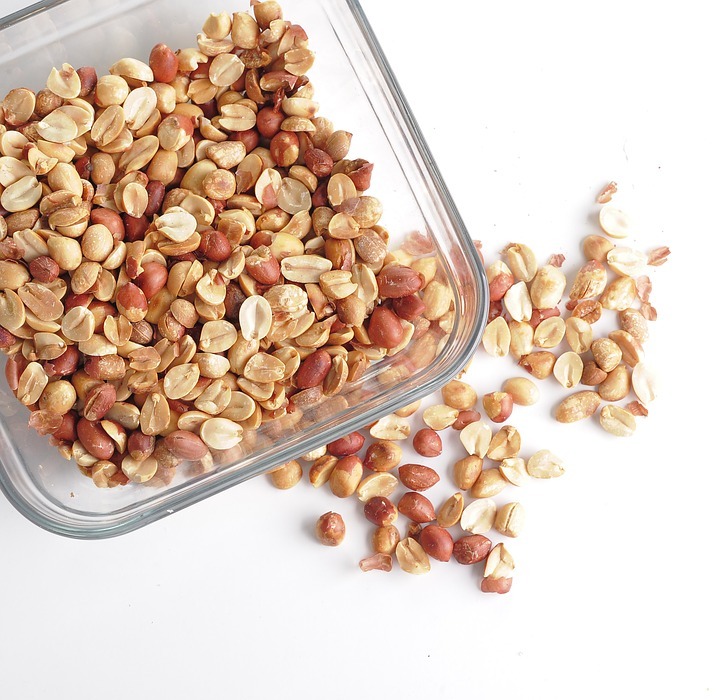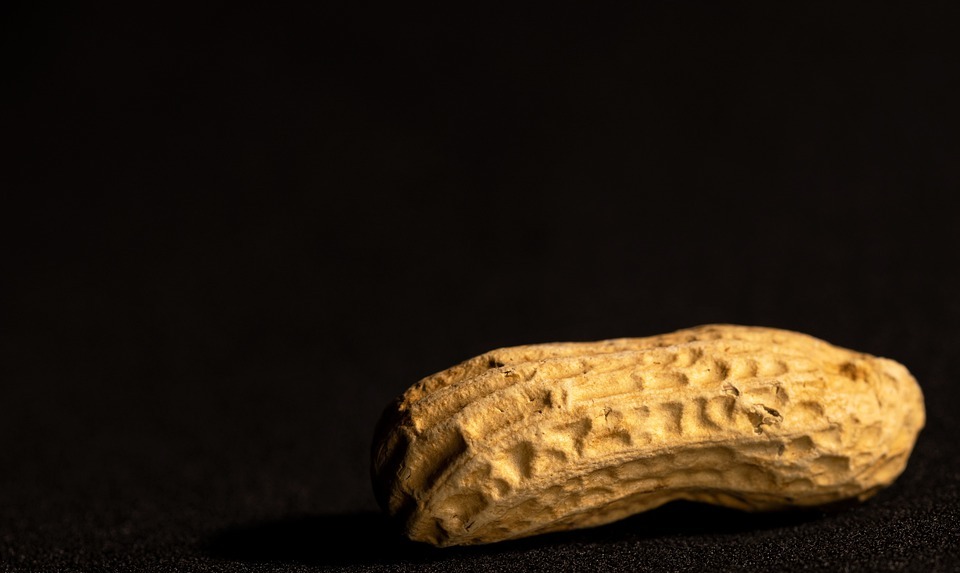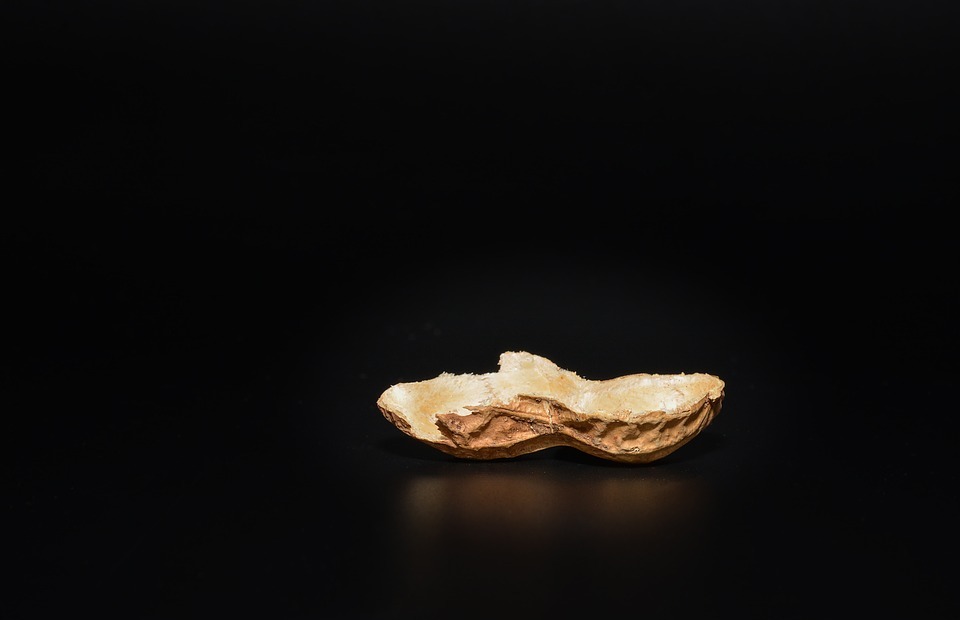The question of whether dogs can eat peanuts is a common one amongst dog owners. While peanuts might seem like a harmless snack for humans, their safety for dogs is a bit more complicated. In this comprehensive guide, we will delve into the potential benefits and risks associated with peanuts for canine companions, examining their nutritional value, potential allergies, and the dangers of peanut butter. We'll also explore different types of peanuts, their processing methods, and their implications for canine consumption. Finally, we will address common queries regarding peanuts and dogs, offering a comprehensive guide to ensure your furry friend's safety and well-being.
Part 1: Nutritional Value of Peanuts

1.1. A Nutritional Powerhouse for Humans
Peanuts, botanically classified as legumes, are a rich source of nutrients beneficial for humans. They are packed with protein, fibre, healthy fats, vitamins, and minerals, making them a valuable addition to a balanced diet.
- Protein: Peanuts are an excellent source of plant-based protein, containing all nine essential amino acids. This protein contributes to muscle growth and repair, making them particularly beneficial for athletes and those seeking to maintain muscle mass.
- Fibre: Dietary fibre in peanuts plays a crucial role in promoting digestive health. It adds bulk to stool, aids in regular bowel movements, and supports a healthy gut microbiome.
- Healthy Fats: Peanuts contain monounsaturated and polyunsaturated fats, including oleic acid and linoleic acid. These fats are beneficial for heart health, helping to lower bad cholesterol levels and reduce the risk of heart disease.
- Vitamins: Peanuts are a good source of vitamins E, B3 (niacin), and B6. Vitamin E is an antioxidant, protecting cells from damage caused by free radicals. Niacin plays a vital role in energy production and metabolism, while vitamin B6 is crucial for protein metabolism and red blood cell formation.
- Minerals: Peanuts provide essential minerals such as magnesium, potassium, and phosphorus. Magnesium is involved in over 300 enzymatic reactions in the body, including muscle function and blood sugar control. Potassium is essential for maintaining fluid balance and nerve function, while phosphorus contributes to bone health and energy production.
1.2. Peanuts for Dogs: A Controversial Treat
While peanuts offer numerous benefits for humans, their nutritional value for dogs is less clear-cut. They are not a necessary part of a dog's balanced diet, and their high fat content can be problematic, especially for overweight or senior dogs.
- Protein: While peanuts do contain protein, it is not as readily digestible by dogs as protein sources like chicken, beef, or fish.
- Fats: The high fat content in peanuts, particularly in roasted varieties, can be problematic for dogs. Excess fat can contribute to weight gain, pancreatitis, and other health issues, especially in overweight or senior dogs.
- Fibre: Dogs typically get adequate fibre from their regular food, making additional fibre from peanuts unnecessary.
1.3. Moderation is Key
If you decide to offer your dog peanuts as an occasional treat, it's crucial to do so in moderation. The exact amount will vary based on your dog's size, activity level, and overall health. Consult with your veterinarian to determine the appropriate amount, if any, for your dog.
Part 2: Peanut Allergies in Dogs

2.1. Peanut Allergy: A Serious Concern
Peanut allergies are a common concern in dogs, and they can be life-threatening. Just like in humans, peanut allergies in dogs are caused by an immune system overreaction to peanut proteins.
- Symptoms: Symptoms of peanut allergy in dogs can vary in severity and can manifest in a range of ways, from mild skin irritation to life-threatening anaphylaxis. Common symptoms include:
- Skin reactions: Itching, hives, redness, swelling, and even hair loss can occur.
- Gastrointestinal upset: Dogs with peanut allergies might experience vomiting, diarrhoea, abdominal pain, and gas.
- Respiratory distress: Difficulty breathing, coughing, wheezing, and even collapse can occur in severe cases.
- Anaphylaxis: This is a severe, life-threatening allergic reaction that can cause a rapid drop in blood pressure, swelling of the throat, and difficulty breathing. It requires immediate emergency veterinary care.
- Skin reactions: Itching, hives, redness, swelling, and even hair loss can occur.
- Diagnosis: If you suspect your dog may have a peanut allergy, it's crucial to consult a veterinarian for proper diagnosis and treatment. They may perform allergy testing, which involves exposing the dog to small amounts of peanut protein to observe for allergic reactions. They may also recommend a food trial, where you eliminate all peanuts and peanut products from your dog's diet for a period of time, and then slowly reintroduce them to see if a reaction occurs.
- Treatment: Treatment for peanut allergies involves avoiding peanuts and peanut products completely. In severe cases, your vet may prescribe antihistamines or other medications to manage symptoms. In cases of anaphylaxis, immediate emergency care, including epinephrine injections, may be necessary to save the dog's life.
2.2. Peanut Allergy: Prevalence and Triggers
The prevalence of peanut allergies in dogs is not well-established. However, it is a growing concern, and awareness is increasing.
- Genetic Predisposition: Certain dog breeds may be more prone to developing peanut allergies. There is some evidence suggesting that certain breeds, such as Labradors, Golden Retrievers, and German Shepherds, may have a higher risk of developing food allergies in general.
- Environmental Factors: Exposure to peanuts at a young age can increase the risk of developing an allergy. This is why it's crucial to avoid feeding peanuts to puppies or dogs with a family history of food allergies.
- Individual Sensitivity: Each dog's immune system reacts differently, with some dogs exhibiting extreme sensitivity to peanuts while others tolerate them without issue. This is why it's always best to err on the side of caution and avoid peanuts altogether.
Part 3: The Risks of Peanut Butter for Dogs

3.1. Peanut Butter: A Popular Treat with Potential Hazards
Peanut butter is a common treat for dogs, but it's important to understand the associated risks. While the creamy texture and nutty flavour are appealing to many dogs, peanut butter can pose serious health risks if not consumed responsibly.
- High Fat Content: Peanut butter is high in fat, which can lead to weight gain, especially if given frequently. Excess weight can put dogs at risk for a range of health problems, including joint pain, heart disease, and diabetes.
- Sugar and Salt: Many peanut butter brands contain added sugar and salt, which are not good for dogs. Sugar can contribute to dental problems, obesity, and even diabetes, while excess salt can lead to dehydration and kidney problems.
- Xylitol Toxicity: Xylitol, an artificial sweetener often used in sugar-free peanut butter, is extremely toxic to dogs. Even a small amount can cause liver failure and death. Signs of xylitol poisoning include vomiting, diarrhoea, weakness, lethargy, and seizures. If you suspect your dog has ingested xylitol, contact your veterinarian or the ASPCA Animal Poison Control Center immediately.
3.2. Choosing Safe Peanut Butter for Dogs
If you choose to give your dog peanut butter, it's essential to select a safe option. Always choose a natural peanut butter with only peanuts and salt as ingredients. Avoid brands containing added sugars, oils, and artificial sweeteners.
- Natural Peanut Butter: Look for peanut butter that is labelled "natural" and contains only peanuts and salt as ingredients. Avoid brands containing added sugars, oils, and artificial sweeteners.
- Check for Xylitol: Always read the label carefully and ensure that the peanut butter does not contain xylitol. Xylitol is extremely toxic to dogs and should be avoided at all costs.
- Moderation is Key: Even safe peanut butter should be given in moderation as a treat, not as a regular part of your dog's diet. A small spoonful a few times a week is generally considered safe, but consult with your veterinarian to determine the appropriate amount for your dog.
Part 4: Types of Peanuts and their Suitability for Dogs
4.1. Different Peanut Varieties
Peanuts come in various varieties, each with its own characteristics. While the different varieties may have subtle differences in flavour and texture, they all contain the same basic nutrients and pose similar risks for dogs.
- Runner Peanuts: This variety is commonly used for peanut butter due to its high oil content, which contributes to its creamy texture.
- Virginia Peanuts: These peanuts are larger and have a more pronounced flavour. They are often used in snacks and confectionery.
- Spanish Peanuts: Smaller and sweeter than other varieties, Spanish peanuts are frequently used in candies and sauces. They are also often used in peanut butter, adding a slightly sweeter taste.
4.2. Processing and Suitability for Canine Consumption
The processing of peanuts can affect their suitability for dogs. Roasting and salting can enhance flavour and texture, but they can also make peanuts less digestible and potentially harmful for canine companions.
- Roasted Peanuts: Roasting enhances the flavour and texture of peanuts, but it can also increase the fat content and make them harder to digest for dogs. Roasted peanuts also tend to be saltier than raw peanuts, which is not healthy for dogs.
- Salted Peanuts: Salt is not healthy for dogs. Excess salt can lead to dehydration, kidney problems, and other health issues.
- Peanut Butter: Peanut butter often contains added sugars and salts, making it a less healthy option for dogs. It's crucial to choose natural peanut butter without added sugars, oils, and artificial sweeteners.
Part 5: Alternatives to Peanuts for Dogs
5.1. Safe and Healthy Treats
If you're looking for alternatives to peanuts for your dog, there are plenty of safe and healthy treats available. Avoid giving your dog any human food without first consulting with your veterinarian, as many foods that are safe for humans can be dangerous for dogs.
- Dog-Specific Treats: Choose treats specifically formulated for dogs, containing appropriate nutrients and ingredients. These treats are designed to be both delicious and beneficial for your dog's health.
- Fruits and Vegetables: Many fruits and vegetables are safe and nutritious for dogs, including apples (without the core), bananas, carrots, and blueberries. These treats offer a healthy and delicious alternative to peanuts.
- Cooked Meat and Fish: Cooked meat and fish can be a delicious and healthy treat for your canine companion. Choose lean cuts of meat and fish that have been cooked thoroughly to prevent foodborne illness.
- Homemade Treats: You can also make your own healthy treats for your dog using ingredients like whole grain flour, oats, peanut-free nut butter (such as sunflower seed butter), and bananas. Consult with your veterinarian for recipes and guidance on appropriate ingredients.
5.2. Consult with Your Veterinarian
Always consult your veterinarian for advice on safe and appropriate treats for your dog, considering their individual needs and health status. They can help you determine the best treats for your dog based on its age, breed, weight, and any existing health conditions.
Part 6: FAQs (Frequently Asked Questions)
6.1. Can dogs eat raw peanuts?
Raw peanuts are generally not recommended for dogs. They can be difficult to digest and may contain harmful bacteria or toxins. It's always best to err on the side of caution and avoid raw peanuts altogether.
6.2. Is peanut butter safe for all dogs?
While some dogs may tolerate small amounts of peanut butter, it's important to be cautious, as it can be a potential choking hazard and contribute to weight gain. Avoid peanut butter containing xylitol, as it is highly toxic to dogs. Always choose natural peanut butter without added sugars, oils, and artificial sweeteners.
6.3. How much peanut butter can a dog eat?
The amount of peanut butter a dog can eat depends on its size and activity level. A small spoonful a few times a week is generally considered safe, but consult with your veterinarian to determine the appropriate amount for your dog.
6.4. What are the signs of a peanut allergy in dogs?
Signs of a peanut allergy in dogs include skin reactions (itching, hives, redness, swelling, and hair loss), gastrointestinal upset (vomiting, diarrhoea, abdominal pain, and gas), respiratory distress (difficulty breathing, coughing, wheezing, and collapse), and anaphylaxis (a severe, life-threatening allergic reaction). If you notice any of these symptoms, seek immediate veterinary attention.
6.5. Is peanut butter good for dog training?
Peanut butter can be used as a reward during dog training, but it should be used sparingly due to its high fat content. Consider alternatives like small pieces of cooked chicken or dog-specific treats.
6.6. Can dogs eat peanut shells?
Peanut shells are not digestible by dogs and can pose a choking hazard. It's best to keep peanut shells out of reach of your furry friend. If your dog accidentally ingests a peanut shell, monitor them closely for signs of choking or digestive issues. If you notice any problems, contact your veterinarian immediately.
Everyone is watching
-

Can Dogs Eat Bananas? A Guide to Safe Treats
DOGS & PUPPIESThis comprehensive guide will delve into the world of canine nutrition, focusing on the popular question: can ...
-

Can Dogs Eat Oranges? (Is It Safe or Toxic?)
DOGS & PUPPIESThis article delves into the question of whether dogs can safely consume oranges. We'll explore the nutrition...
-

Can Dogs Eat Grapes? The Shocking Truth About This Fruit
DOGS & PUPPIESThis article delves into the controversial topic of grapes and dogs, exploring the potential dangers associate...
-

Why Do Dogs Eat Poop? Understanding Coprophagia in Dogs
DOGS & PUPPIESThis article delves into the perplexing phenomenon of coprophagia, the act of eating faeces, in dogs. We explo...
-

Can Dogs Eat Shrimp? A Guide to Safety and Risks
DOGS & PUPPIESThis comprehensive guide dives into the world of shrimp and dogs, exploring the potential benefits and risks a...
